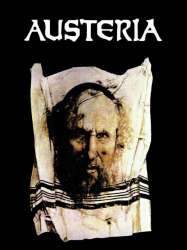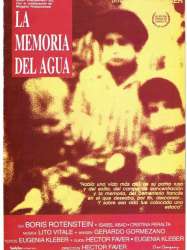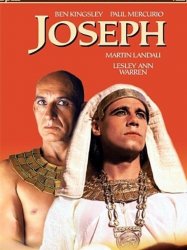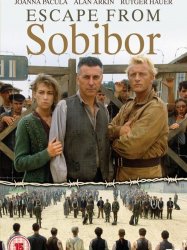Films with theme "Films about Jews and Judaism", sorted by revenue

The Chosen (1981)
, 1h48Directed by Jeremy Kagan
Origin USA
Genres Drama
Themes Films about religion, Films about Jews and Judaism, Children's films
Actors Maximilian Schell, Rod Steiger, Robby Benson, Barry Miller, Ron Rifkin, Robert John Burke
The film takes place in Brooklyn, beginning near the conclusion of the Second World War. Reuven Malter is a middle-class Modern Orthodox Jewish teenager, and the son of David Malter, a college professor and dedicated Zionist. At a baseball game between their schools, Reuven meets Danny Saunders, another Jewish teenage boy. At first, the meeting is one of enmity since Danny accidentally injures Reuven's eye during the game; this results in Reuven wearing an eye patch for a good portion of the movie. Danny goes to Reuven's house to apologize to him and the teens gradually become friends, despite their differing backgrounds. It turns out that Danny is the eldest son of a Hasidic Rebbe, the dynastic leader the Hasidic Jews in that neighborhood. However, Danny is somewhat distant from him. Danny has also been going to the nearby public library and reading books on psychology. He amazes Reuven with his ability to remember word-for-word what he has read. It turns out that Reuven's father has been showing him these books. Reuven and Danny also go to a Sabbath service in Danny's Hasidic community as Danny is eager for Reuven to meet his father. Danny's father approves of their friendship - however, Rebbe Saunders disapproves of Prof. Malter's writings, which doesn't surprise the professor. Rebbe Saunders also wishes for Danny to become a rabbi and to eventually succeed him in leading his Hasidic community, as this has been tradition for several generations, but Danny doesn't seem very eager to pursue this.

Noa at 17 (1982)
, 1h26Origin Israel
Themes Films about religion, Films about Jews and Judaism
Amid the political turmoil of the early 1950s in Israel, Noa (Dalia Shimko) is a fiercely independent 17-year-old member of a youth movement who finds herself in disagreement with her parents and her collective-minded, Zionist friends. She is caught between her desire to join a kibbutz and her parents' wish for her to graduate high school. At the same time, Noa's struggle is also part of a larger argument that divides the young nation. The bitter ideological battle taking place within the kibbutz movement following the Korean War whether to follow the model of the Soviet Union or that of the capitalist west threatens to fracture families, friendships and whole communities. Noa must fight for her individuality, her right to doubt and question all belief systems, but in the end finds herself isolated and disillusioned.

Austeria (1983)
, 1h42Directed by Jerzy Kawalerowicz
Origin Pologne
Genres Drama, War
Themes Films about religion, Political films, Films about Jews and Judaism
Actors Franciszek Pieczka, Wojciech Pszoniak, Liliana Komorowska, Szymon Szurmiej, Gołda Tencer, Ernestyna Winnicka
Premier jour de la Première Guerre mondiale. Des hassidim, venant en charrettes d’une petite ville de Galicie sont accueillis par le vieux Tag, esprit frondeur, et sa famille dans son auberge (austeria signifie auberge). En carrosse, arrive une Juive fréquentant les milieux aisés de Vienne. Elle fuit et essaie de persuader l’aubergiste de venir avec elle. Il refuse et reste avec sa belle-fille et sa petite-fille qui craignent un pogrom. La servante ukrainienne Jewdocha informe que les Cosaques approchent (nous sommes à proximité de la frontière russe). Une bataille se déroule non loin de l'auberge. D'autres fuyards qui étaient passés auparavant reviennent finalement s'abriter à l'auberge le soir. Parmi eux, le jeune Bum qui porte dans ses bras le corps de sa bien-aimée Asia. Les parents d'Asia et de Bum sont là aussi. Un tzadik (« juste » en hébreu) de Zydaczewo s'arrête lui aussi à l'auberge. Les hassidim se mettent à danser.

Jacob (1994)
, 1h31Directed by Peter Hall
Origin USA
Genres Drama, Fantasy, Adventure, Historical, Peplum
Themes Films about religion, Films based on the Bible, Films about Jews and Judaism
Actors Matthew Modine, Lara Flynn Boyle, Sean Bean, Giancarlo Giannini, Joss Ackland, Juliet Aubrey
Jacob defrauds his twin brother Esau (Sean Bean) and flees. In Haran he gets to know his cousin Rachel (Lara Flynn Boyle), and falls in love with her. Years of hard work later he marries Rachel and reconciles with his brother Esau.

The Jewess and the Captain (1994)
, 1hGenres Documentary
Themes Films about racism, Films about religion, Documentary films about racism, Documentary films about law, Documentary films about war, Documentary films about historical events, Documentaire sur une personnalité, Documentary films about religion, Political films, Films about Jews and Judaism, Documentary films about World War II

Memory of Water (1992)
, 1h22Directed by Héctor Fáver
Genres Documentary
Themes Films about religion, Political films, Films about Jews and Judaism
Actors Héctor Fáver

Sh'Chur (1994)
, 1h40Origin Israel
Genres Drama
Themes Films about religion, Films about Jews and Judaism
Actors Gila Almagor, Ronit Elkabetz, Amos Lavi
After their father dies, Rachel and her sister make the journey for his funeral. Along the way Rachel's mind is flooded with memories of the mysticism of her childhood in Israel, where magic rituals were the solution to everyday problems.

Under The Domim Tree (1994)
, 1h42Directed by Eli Cohen
Origin Israel
Genres Drama
Themes Films about religion, Films about Jews and Judaism
Actors Gila Almagor, Juliano Mer-Khamis, Ohad Knoller, Riki Blich
The film follows the lives and struggles of several teenagers, focusing on Aviya, an Israeli sabra whose father was killed in 1939 in Israel and whose mother suffers from mental illness. The youths, most Holocaust survivors and all orphans, live in a communal farming village.

All Hell Broke Loose (1995)
, 45minutesOrigin Israel
Genres Documentary
Themes Films set in Africa, Films about religion, Films about terrorism, Documentary films about law, Documentary films about war, Documentary films about historical events, Documentaire sur une personnalité, Documentary films about politics, Documentary films about religion, Documentary films about terrorism, Political films, Films about Jews and Judaism

Baba Lubba (1995)
, 1hOrigin Israel
Genres Documentary
Themes Films about music and musicians, Films about religion, Documentary films about music and musicians, Documentaire sur une personnalité, Documentary films about religion, Musical films, Films about Jews and Judaism
 , 55minutes
, 55minutesOrigin USA
Themes Films about religion, Documentary films about historical events, Documentary films about religion, Documentary films about cities, Films about Jews and Judaism

Joseph (1995)
, 2h58Directed by Roger Young, Robert Malcolm Young
Origin USA
Genres Drama, Fantasy, Adventure, Historical, Peplum
Themes Films set in Africa, Films about religion, Films based on the Bible, Films about Jews and Judaism
Actors Ben Kingsley, Paul Mercurio, Martin Landau, Dominique Sanda, Lesley Ann Warren, Alice Krige
Joseph, a Hebrew, is an Egyptian slave to Potiphar, chief of Pharaoh's palace guard. When Joseph is placed under the charge of Ednan, Potiphar's overseer, Ednan torments Joseph for his refusal to show deference for the Egyptian god Amun. But Joseph eventually earns Ednan's respect when he reveals that he knows how to read, and Ednan starts relying more and more on Joseph.

Angry Harvest (1985)
, 1h45Directed by Agnieszka Holland
Origin German
Genres Drama, War, Romance
Themes Films about religion, Political films, Films about Jews and Judaism
Actors Armin Mueller-Stahl, Elisabeth Trissenaar, Wojciech Pszoniak, Gerd Baltus, Tilly Lauenstein, Margit Carstensen
In the winter of 1942-43, a Jewish family leaps from a train going through Silesia. They are separated in the woods, and Leon, a local peasant who's now a farmer of some wealth, discovers the woman, Rosa, and hides her in his cellar. Leon's a middle-aged Catholic bachelor, tormented by his sexual drive. He doesn't tell Rosa he's seen signs her husband is alive, and he begs her to love him. Rosa offers herself to Leon if he'll help a local Jew in hiding who needs money. Leon pays, and love between Rosa and him does develop, but then Leon's peasant subservience and his limited empathy lead to tragedy.

The Dream (1987)
, 45minutesDirected by Mohamed Malas
Genres Documentary
Themes Films set in Africa, Films about immigration, Films about religion, Documentary films about law, Documentary films about war, Documentary films about historical events, Documentaire sur une personnalité, Documentary films about religion, Political films, Films about Jews and Judaism
The film was composed of several interviews with different Palestinian refugees including children, women, old people, and militants from the refugee camps in Lebanon. In the interviews Malas questions his subjects about their dreams at night. Through their answers, the film attempts to reveal the underlying subconsciousness of the Palestinian refugee. The dreams always converge on Palestine; a woman recounts her dreams about winning the war; a fedai of bombardment and martyrdom; and one man tells of a dream where he meets and is ignored by Gulf emirs. According to Rebecca Porteous, the film constructs "the psychology of dispossession; the daily reality behind those slogans of nationhood, freedom, land and resistance, for people who have lost all of these things, except their recourse to the last.

Escape from Sobibor (1987)
, 2h23Directed by Jack Gold
Origin United-kingdom
Genres Drama, War, Thriller, Historical
Themes Prison films, Films about religion, Political films, Films about Jews and Judaism
Actors Alan Arkin, Joanna Pacuła, Rutger Hauer, Hartmut Becker, Jack Shepherd, Wolfgang Bathke
The film begins with a new trainload of Polish Jews arriving for processing at Sobibor. The German Commandant gives them a welcoming speech, assuring the new arrivals that the place is a work camp. Other SS officers move along the assembled lines of prisoners, selecting a small number who have trade skills (such as goldsmiths, seamstresses, shoemakers, and tailors). The remaining prisoners are sent away to a different part of the camp from which a pillar of smoke rises day and night. It is some time before the new prisoners realize Sobibor is a death camp, all of the other Jews are exterminated in gas chambers, and their corpses are cremated in large ovens. The small number of prisoners who are kept alive in the other part of the camp are charged with sorting the belongings taken from those who are murdered and then repairing the shoes, recycling the clothing, and melting down any silver or gold to make jewelry for the SS officers. Despite their usefulness, these surviving prisoners' existence is precarious, and beatings and executions can occur at any time.
 Connection
Connection